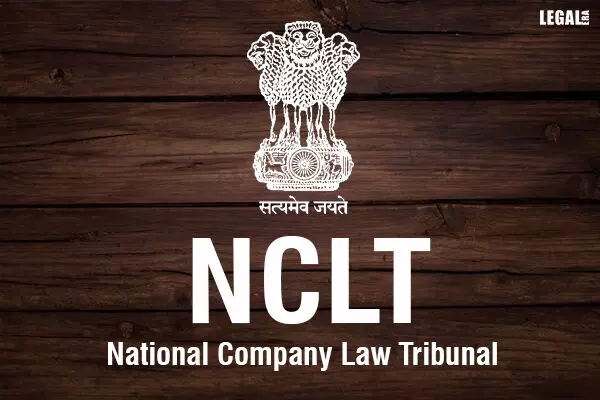- Home
- News
- Articles+
- Aerospace
- Agriculture
- Alternate Dispute Resolution
- Banking and Finance
- Bankruptcy
- Book Review
- Bribery & Corruption
- Commercial Litigation
- Competition Law
- Conference Reports
- Consumer Products
- Contract
- Corporate Governance
- Corporate Law
- Covid-19
- Cryptocurrency
- Cybersecurity
- Data Protection
- Defence
- Digital Economy
- E-commerce
- Employment Law
- Energy and Natural Resources
- Entertainment and Sports Law
- Environmental Law
- FDI
- Food and Beverage
- Health Care
- IBC Diaries
- Insurance Law
- Intellectual Property
- International Law
- Know the Law
- Labour Laws
- Litigation
- Litigation Funding
- Manufacturing
- Mergers & Acquisitions
- NFTs
- Privacy
- Private Equity
- Project Finance
- Real Estate
- Risk and Compliance
- Technology Media and Telecom
- Tributes
- Zoom In
- Take On Board
- In Focus
- Law & Policy and Regulation
- IP & Tech Era
- Viewpoint
- Arbitration & Mediation
- Tax
- Student Corner
- AI
- ESG
- Gaming
- Inclusion & Diversity
- Law Firms
- In-House
- Rankings
- E-Magazine
- Legal Era TV
- Events
- News
- Articles
- Aerospace
- Agriculture
- Alternate Dispute Resolution
- Banking and Finance
- Bankruptcy
- Book Review
- Bribery & Corruption
- Commercial Litigation
- Competition Law
- Conference Reports
- Consumer Products
- Contract
- Corporate Governance
- Corporate Law
- Covid-19
- Cryptocurrency
- Cybersecurity
- Data Protection
- Defence
- Digital Economy
- E-commerce
- Employment Law
- Energy and Natural Resources
- Entertainment and Sports Law
- Environmental Law
- FDI
- Food and Beverage
- Health Care
- IBC Diaries
- Insurance Law
- Intellectual Property
- International Law
- Know the Law
- Labour Laws
- Litigation
- Litigation Funding
- Manufacturing
- Mergers & Acquisitions
- NFTs
- Privacy
- Private Equity
- Project Finance
- Real Estate
- Risk and Compliance
- Technology Media and Telecom
- Tributes
- Zoom In
- Take On Board
- In Focus
- Law & Policy and Regulation
- IP & Tech Era
- Viewpoint
- Arbitration & Mediation
- Tax
- Student Corner
- AI
- ESG
- Gaming
- Inclusion & Diversity
- Law Firms
- In-House
- Rankings
- E-Magazine
- Legal Era TV
- Events
NCLAT Chennai Upholds Liquidator's Rejection Of Claims Involving Counterclaims

NCLAT Chennai Upholds Liquidator's Rejection Of Claims Involving Counterclaims
The National Company Law Appellate Tribunal's Chennai Bench, comprising Shri Justice Venugopal M. (Judicial Member) and Shri Jatindranath Swain (Technical Member), ruled during the adjudication of an application under Section 61 of the Insolvency and Bankruptcy Code, 2016 (IBC, 2016) in the case of M/s. FL Smidth Private Limited v. Lanco Infratech Ltd., that in cases involving both claims and counterclaims, the liquidator is not authorized to decide on them.
Lanco Infratech, the Corporate Debtor, issued a purchase order to FL Smidth Private Limited, the Appellant/Operational Creditor, for supplying certain systems and awarded them a work order for erection, supervision, commissioning, and conducting performance guarantee tests, totaling Rs. 95.17 crore. Despite this, the Corporate Debtor failed to open a letter of credit worth Rs. 73.602 crore, didn't accept delivery of supplies, and didn't provide clearance for material dispatch. The Appellant filed a claim of Rs. 71.09 crore to the Insolvency Resolution Professional (IRP) against the Corporate Debtor. While Rs. 13.47 crore was deemed payable, the remaining claim of Rs. 57.65 crore was rejected. Subsequently, another claim of Rs. 31.71 crore was made, which was also denied.
The Appellant contended that the Corporate Debtor failed to fulfil its contractual obligations from the outset by not establishing the letters of credit as required. Additionally, it was argued that the Corporate Debtor neither accepted delivery of materials nor provided the Material Dispatch Clearance Certificate to the Appellant. This non-performance resulted in the cancellation of the contract by the end user, TANGEDCO. Furthermore, it was asserted that the Respondent Liquidator initially accepted a portion of the claim (Rs. 13.47 crore) but later rejected it, claiming only Rs. 1.51 crore was due, thereby allegedly failing in his duty as a Liquidator.
Conversely, the Liquidator argued that the claims not recognized as due payable were ones lacking supporting documents such as invoices or dispatch records in the Corporate Debtor's records. Additionally, it was asserted that claims disallowed due to the Corporate Debtor's non-performance would need to be adjudicated by a competent Civil Court or Arbitrator before they could be considered as Dues within the context of the IBC framework.
The tribunal noted that the NCLT Hyderabad had thoroughly examined this matter and correctly upheld the Liquidator's submission and rationale. It was determined that "when claim and counterclaims are involved, the Liquidator cannot decide the same," and thus the Liquidator's rejection of the claim was deemed appropriate. With this observation, the appeal was dismissed.



